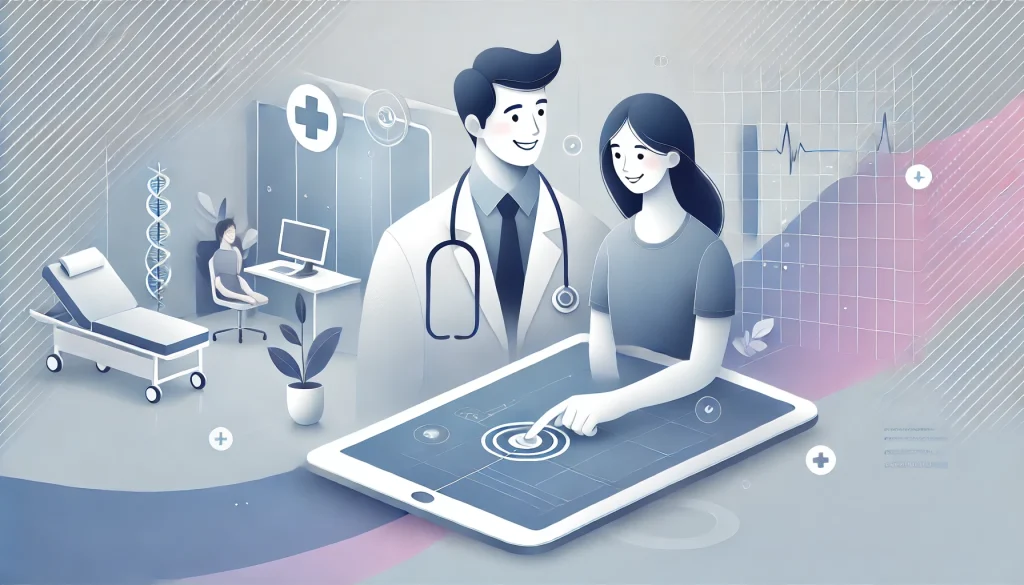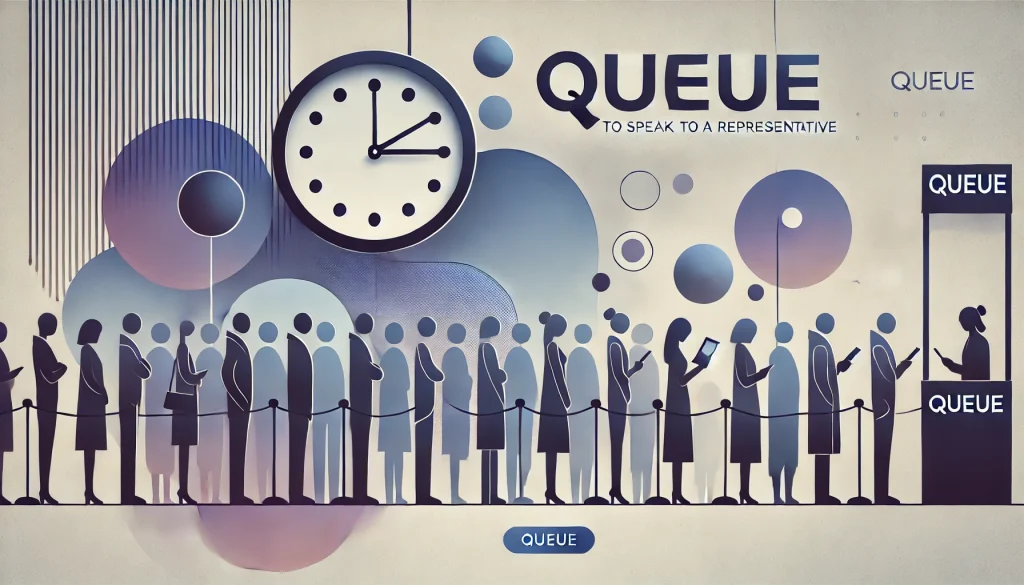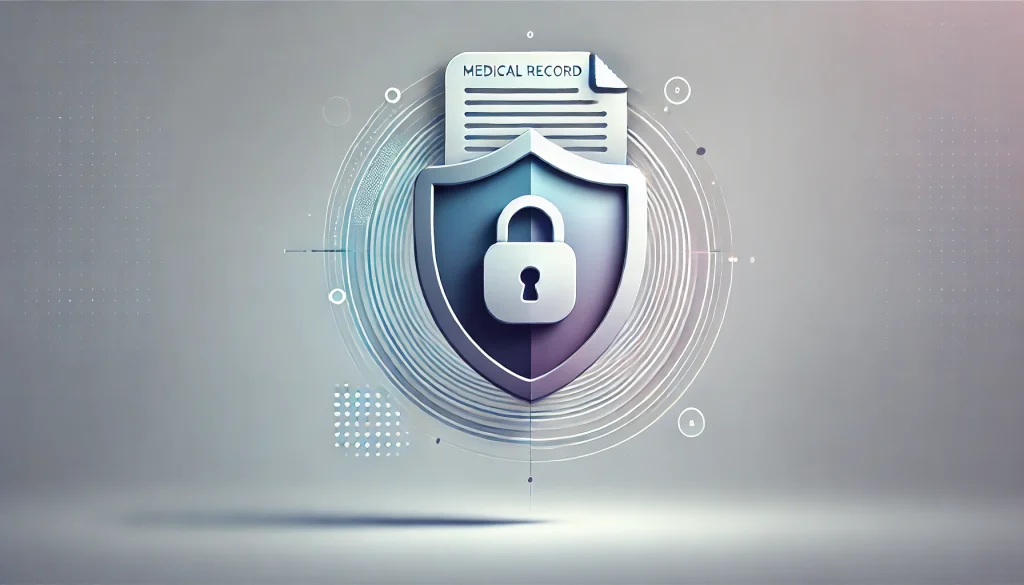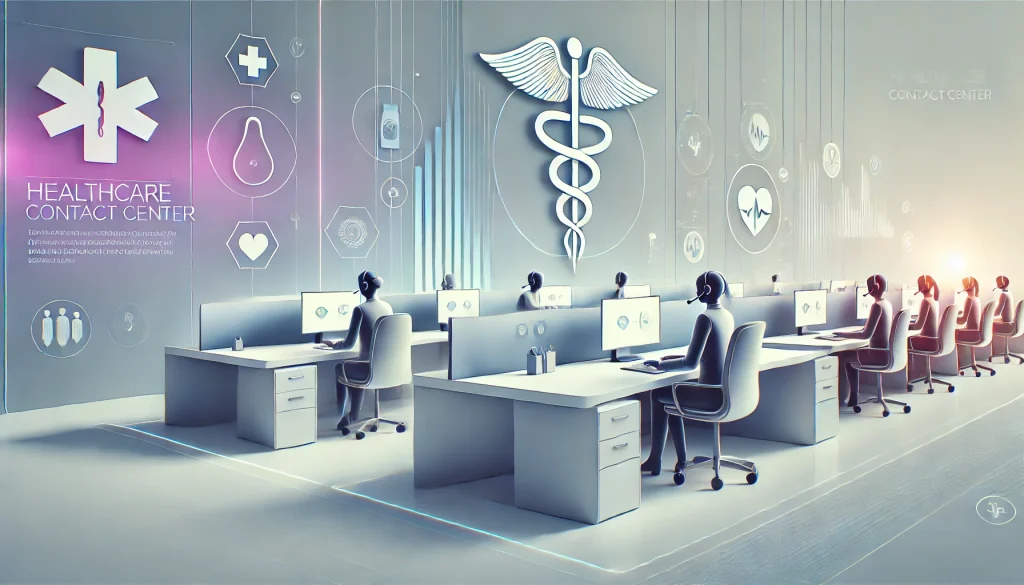
Healthcare contact centers are pivotal in managing patient interactions, from appointment scheduling to addressing medical inquiries. However, they often encounter challenges that hinder efficiency and patient satisfaction. This blog presents common hurdles faced by healthcare contact centers and how SwiftResponse, a solution offered by f1studioz, enhances performance and patient experience.
Challenges in Healthcare Contact Centers

1. Inefficiencies in Scheduling Appointments and Managing Medical Inquiries
Scheduling appointments and handling medical inquiries often rely on outdated systems or manual processes. This creates multiple pain points:

- Miscommunication: Patients may receive incorrect information due to errors in scheduling or data entry. In fact, current research indicates that ineffective communication among healthcare professionals is one of the leading causes of medical errors and patient harm.
- Double-Booking: Ineffective coordination can result in two or more patients being scheduled for the same time slot, leading to delays and frustration.
- Missed Follow-Ups: Lack of automated reminders can cause healthcare providers to miss critical follow-ups, impacting patient care. A study found that around 23% of patients in emergency departments left without a clear understanding of their health problems or necessary follow-up steps.
These inefficiencies reduce operational effectiveness and erode patient trust in the system.
2. Low First Call Resolution (FCR) Rates for Insurance-Related Questions
Insurance queries often require navigating complex coverage policies, eligibility checks, and claims processes. Challenges include:

- Time-Consuming Verifications: Agents may need to sift through multiple databases to verify coverage, causing delays.
- Inconsistent Responses: Without a unified system, patients may receive conflicting answers, leading to repeated calls.
- Higher Operational Costs: With lower FCR rates, patients often need to follow up, increasing call volumes and operational strain.
This can frustrate patients while driving up the contact center’s costs.
3. High Call Volumes and Long Wait Times
Healthcare contact centers often face surges in call volumes during public health emergencies or seasonal peaks. This creates challenges such as:

- Extended Wait Times: Patients may wait on hold for prolonged periods, leading to dissatisfaction and higher abandonment rates. Long wait times due to scheduling issues lead about 20% of patients to seek care from alternative providers.
- Increased Pressure on Agents: Agents are often required to multitask under immense pressure, which can reduce the quality of interactions.
- Resource Constraints: Insufficient staffing levels to handle spikes in demand result in slower response times.
These issues not only impact patient satisfaction but also harm the center’s reputation.
4. Agent Burnout and High Turnover Rates

Agents work in high-stress environments, dealing with sensitive issues like patient health, insurance concerns, and complaints. Key factors contributing to burnout include:
- Emotional Toll: Handling distressed patients or delivering bad news can be mentally taxing.
- Repetitive Tasks: Performing the same tasks repeatedly without adequate support or career growth opportunities leads to dissatisfaction.
- Inadequate Training: Lack of sufficient training or resources can leave agents feeling unprepared, further exacerbating stress.
Burnout often results in high turnover rates, increasing recruitment and training costs for the organization.
5. Data Security and Compliance Challenges

Healthcare contact centers handle sensitive patient data, including medical histories, insurance information, and personal details. Key challenges include:
- Strict Regulatory Requirements: Centers must comply with regulations like HIPAA (in the U.S.) or GDPR (in Europe), which demand stringent data security measures.
- Risk of Data Breaches: Outdated systems or human error can expose patient information, leading to potential legal and financial repercussions.
- Reputation Damage: A single data breach can erode public trust and tarnish the healthcare provider’s reputation.
Ensuring data security and compliance is not just a technical necessity but a cornerstone of patient trust.
How SwiftResponse Transforms Healthcare Contact Centers

SwiftResponse leverages advanced technology to address these challenges, enabling healthcare providers to deliver smooth, patient-focused support.
i. AI-Powered Task Flows for Accurate Appointment Scheduling
- SwiftResponse integrates AI into agent workflows, ensuring appointments are scheduled accurately without overbooking or conflicting slots.
- Patients receive quicker responses to inquiries, reducing wait times and improving their experience.
- The system prioritizes urgent requests, such as consultations or follow-ups, ensuring critical cases are handled promptly.
ii. Interactive Dashboards for Supervisors
- Real-time dashboards offer supervisors detailed insights into agent performance, call volumes, and resolution rates.
- Supervisors can monitor trends, identify bottlenecks, and implement immediate corrective actions to improve service quality.
- Insights from these dashboards enable better resource allocation and targeted training, enhancing overall efficiency.
iii. Automated Call Routing and Self-Service Options
- SwiftResponse employs intelligent call routing to direct patients to the appropriate department or agent, reducing wait times and improving FCR rates.
- Self-service options, such as AI-powered chatbots, handle routine inquiries, allowing agents to focus on more complex issues.
iv. Comprehensive Training and Support Tools
- SwiftResponse provides agents with real-time access to patient information and knowledge bases, enabling them to resolve issues efficiently.
- Continuous training modules ensure agents stay updated on the latest procedures and compliance requirements.
v. Robust Data Security and Compliance Features
- SwiftResponse ensures all patient interactions comply with healthcare regulations, including HIPAA, safeguarding patient data.
- Secure communication channels and data encryption protect sensitive information from breaches.
Benefits of SwiftResponse for Healthcare Contact Centers

- Improved Patient Experience: Faster appointment scheduling and resolution of medical inquiries enhance patient satisfaction and trust in the healthcare system.
- Higher Efficiency: Automated workflows reduce agent workloads and minimize errors, leading to better utilization of resources.
- Cost Savings: By increasing FCR rates and reducing repeat calls, healthcare providers can lower operational costs without compromising service quality.
- Enhanced Agent Well-being: Addressing agent burnout through efficient systems and support tools leads to higher job satisfaction and lower turnover rates.
- Regulatory Compliance: Ensuring all interactions meet data security and privacy standards protects the organization from legal repercussions.
Why Choose SwiftResponse for Healthcare Contact Centers?
SwiftResponse, a solution by f1studioz, combines AI-driven solutions with a patient-centric approach to redefine healthcare contact center operations. It addresses not only inefficiencies but also empowers agents and supervisors with tools that foster continuous improvement.
Investing in such technology ensures healthcare providers are equipped to handle the growing demands of patient care while delivering superior service.
Also Read: SwiftResponse: Optimising Contact Center Efficiency for Modern Support







